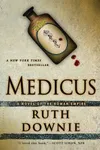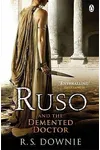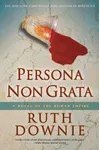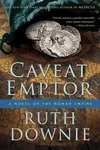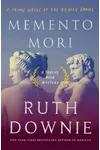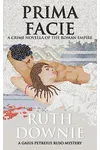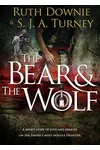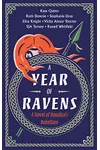Picture a British storyteller who whisked readers to the gritty, vibrant world of Roman Britain—meet Ruth Downie! With her Medicus Investigation series, this North Devon native blends historical precision with page-turning mysteries, following army medic Gaius Petreius Ruso as he navigates murders and cultural clashes. Downie’s knack for breathing life into ancient times has earned her a loyal following among historical fiction fans.
Her novels aren’t just about solving crimes; they explore the messy, fascinating collision of Roman and Celtic cultures, with a dash of humor and heart. Ready to step into Downie’s Roman world? Let’s uncover her story.
The Making of Ruth Downie
Born on April 18, 1955, in North Devon, England, Ruth Downie grew up in a region steeped in history, which likely sparked her fascination with the past. Armed with an English degree, she initially planned for a simple life—marriage, kids, and happily-ever-after. But a family trip to Hadrian’s Wall changed everything. Learning that Roman soldiers could form relationships with local women but not marry them ignited her imagination, planting the seeds for her Medicus series. Downie, a self-described archaeology enthusiast, dove into research, wielding a trowel and a pen to craft her debut novel, Medicus, which won the Fay Weldon section of BBC3’s End of Story competition in 2004.
Ruth Downie’s Unforgettable Stories
Downie’s Medicus Investigation series, set in the second century, stars Gaius Petreius Ruso, a Roman army doctor with a knack for stumbling into mysteries. In Medicus (2006), Ruso arrives in Deva (modern-day Chester) to escape debts and a failed marriage, only to rescue an injured slave girl, Tilla, and investigate the murders of local barmaids. The novel’s blend of humor, historical detail, and suspense sets the tone for the series.
Terra Incognita (2008) follows Ruso and Tilla to a tense Roman outpost, where a murder threatens to spark war with Tilla’s village. Persona Non Grata (2009) takes them to Gaul, diving into family drama and intrigue, while Caveat Emptor (2010) tackles corruption in Verulamium. Downie’s style shines through her vivid settings, witty dialogue, and themes of slavery, compassion, and cultural integration, making ancient Britain feel as real as today.
Her latest work, Prima Facie (2019), a novella, shifts to Roman Gaul, where Ruso grapples with a farm, debts, and a murder mystery. Downie’s ability to balance character-driven stories with twisty plots keeps readers hooked, earning comparisons to Lindsey Davis’s Falco series, though her humor leans subtler and her focus on Britannia’s cultural dynamics feels unique.
Why Ruth Downie Matters
Ruth Downie’s work does more than entertain; it illuminates the human side of Roman Britain, from the struggles of enslaved locals to the moral dilemmas of Roman occupiers. Her meticulous research and compassionate lens highlight timeless issues like power, identity, and resilience, resonating with modern readers. By centering Tilla, a Briton navigating a Roman world, Downie gives voice to the marginalized, making her series a standout in historical fiction.
Fans praise her for crafting immersive, relatable characters, and her New York Times bestselling status underscores her impact. Whether you’re a history buff or a mystery lover, Downie’s stories offer a portal to a world both distant and familiar, proving that good storytelling transcends time.
- Birth Date: April 18, 1955, North Devon, England
- Key Works: Medicus, Terra Incognita, Persona Non Grata, Prima Facie
- Notable Award: Winner, Fay Weldon section of BBC3’s End of Story (2004)
Snag Medicus and dive into Ruth Downie’s witty, immersive world of Roman mysteries—your inner historian will thank you!
